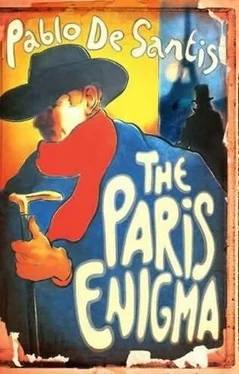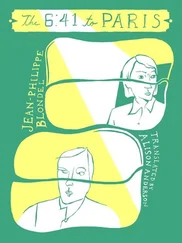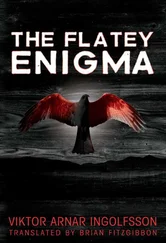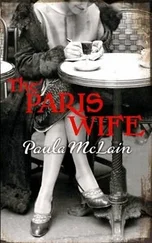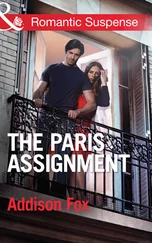“The women are; we men are freethinkers…”
“Then I hope your mother doesn’t mind that her son works for an unbaptized detective.”
We went out onto the street and I quickened my step to keep up with Arzaky.
“Aren’t you going to ask me where we’re headed? Or have you already guessed?”
“I’m in no condition to guess.”
“You don’t seem to care either.”
“In ten minutes, after a cup of coffee, I’ll start caring about things again.”
Arzaky walked lively in his newly shined boots. He was wide awake at night and in the morning too. I don’t know when he slept, I’m not even sure he did. We walked fifteen or twenty blocks and we stopped in front of a building whose bronze plaque announced the society for platonic studies.
Arzaky rapped with the doorknocker, a bronze fist. A butler opened the door; he was an old man with eyes so pale he looked blind.
“The secretary of the society, Monsieur Bessard, told me to expect you. It’s about the painting, right?”
He led us up a staircase. He was so old that I wouldn’t have bet money on his being able to climb the stairs. But he had gone up and down them so many times that he and that staircase had become friends, and the oak steps pushed him upward; his steps were light, while ours sounded like heavy marching. The staircase led us to a meeting room: a large table, dirty curtains, library shelves. On one of the walls was a painting of four men walking among ruins and olive trees. I guessed that the most broad-shouldered one was Plato, although they were fairly indistinguishable in their tunics and beards. One carried a torch, another a pitcher, the third a handful of dirt, and the fourth was blowing a dried leaf.
“Here it is, The Four Elements . Stolen by Sorel.”
“A painting that sent a man to his death,” I said.
“No, if you remember correctly it was the woman, not the painting, that sent him to his death. If he had killed someone for the painting, Sorel would now be in crime’s gilded archives. But instead he ended up on the endless gray list of all those who kill for love, for jealousy, out of blindness. Love inspires more crimes than hate and ambition do.”
I stared at the solemn, static painting.
“I wanted to find a relationship between Sorel and Darbon,” said Arzaky, as if he were talking to the figures in the painting.
“Did Darbon have anything to do with the recovery of the painting?”
“No, nothing at all.”
“So?”
“So, nothing. The first fact: Darbon’s death. The second: Sorel ’s cremation. What do those two men have in common?”
“I don’t know.”
“There is one thing. They were both my rivals. I’m searching for the missing piece of the puzzle that connects Darbon and Sorel.”
“You said that an investigation was nothing like a jigsaw puzzle.”
“Did I say that?”
“You agreed with the Japanese detective. He said that investigation was like a blank page. That we think we see mysteries where there may be nothing at all.”
“I’m pleased that you remember. If I manage to solve this case, you must write up the account of it. I don’t remember any of my own words, but I remember what everyone else says. So then we won’t search for a puzzle piece, we’ll search for a line on a blank page.”
I approached the painting.
“The victims may not be connected through their rivalries with you. Darbon could have been killed by the crypto-Catholics and Sorel could have been burned by someone from his past, someone related to his crime.”
“Perhaps you’re right. Our minds always search for hidden associations. We like things to rhyme. We can’t accept chaos, stupidity, the shapeless proliferation of evil. We’re more like the crypto-Catholics than we think.”
Since we were spending so long in front of the painting, the butler came over to check on us.
“Has anyone else been to see the painting?” asked Arzaky.
“A young lady. She was pretty and seemed very determined.”
“Did she mention her name?”
“Yes, but I don’t remember what it was. She just stared at the painting and I stared at her. Her hair was the color of fire.”
“A philosophy enthusiast,” I said.
The old man, to my dismay, shook his head.
“Women never come here, only old men, sometimes even older than me. And all of sudden this young lady comes in. She told me not to tell anyone that she had been here.”
“So you’re betraying her secret.”
“That’s true. But ever since she came here I’ve been asking myself if it was just a dream. Now that I see this young man’s face, I can tell that it wasn’t.”
Arzaky looked at me sternly.
“Do you know what he is talking about?”
“No. Maybe he’s right and it was a dream. Why would a young woman come here?”
The old man seemed to be weighing my words.
“Then it was a dream,” he said. “That’s not such a bad thing. After all, a dream can recur.”
We went down the stairs. Standing at the door, we thanked the old man for his kindness.
“The pleasure is all mine,” said the old man. “I got to meet the great Arzaky. They say he is the only living Platonic philosopher.”
“I’m afraid that for a detective that description isn’t a compliment. It’s my enemies who say that.”
“You yourself said that enemies always tell the truth and that only slander does us justice.”
“If I said that, then I’m more of a Sophist than a Platonist.”
I was afraid that Arzaky would question me about the woman, but as soon as the door closed he hurried off, as he was expected at a meeting.
As I walked toward the hotel, I thought that my silence about Greta was a betrayal of Arzaky’s confidence. This is the only thing I’ll keep from him, I promised myself. When I arrived at the Nécart Hotel the concierge handed me a note folded in two. The ink was green, and the handwriting a woman’s.
i know you took that photograph from grialet’s house. if you haven’t mentioned it to arzaky, don’t. i want to see you tonight, at the theater after the show. the rear door will be open. go up the stairs. THE MERMAID
It wasn’t even noon, and I had already found another occasion to betray him.
The Grand Opening was four days away, and Viktor Arzaky had already filled the glass cases of the parlor with a variety of objects lent by the detectives. Louis Darbon’s widow had donated a microscope with a slide containing a shiny drop of blood. Hatter was displaying some of his toys, including a windup soldier that counted meters while it walked. The best Novarius could come up with was the Remington revolver he had used to kill Wilbur Kanis, the train robber, on the Mexican border. At first Arzaky had opposed the idea of showing such a common weapon, it seemed to be the exact opposite of what a detective represented. But since there was so little time left, he gave in.
“Don’t you have something to display that ref lects your thinking?” I said to Novarius, and he replied: “That is how I think.”
Magrelli had filled several shelves with his portable criminal anthropology office, which didn’t look particularly portable at all. It was comprised of endless comparative charts, a photographic archive, and several instruments made of German steel that were designed to measure the length of a nose, the circumference of one’s head, or the distance between one’s eyes. Some of the objects needed an explanatory card, such as the one Madorakis displayed from the Case of the Spartan Code, which was a short cane on which you could attach a strip of fabric containing a message. Only someone with a similar cane could decipher it. Castelvetia had chosen a set of five Dutch magnifying glasses, with different gradations.
Читать дальше
